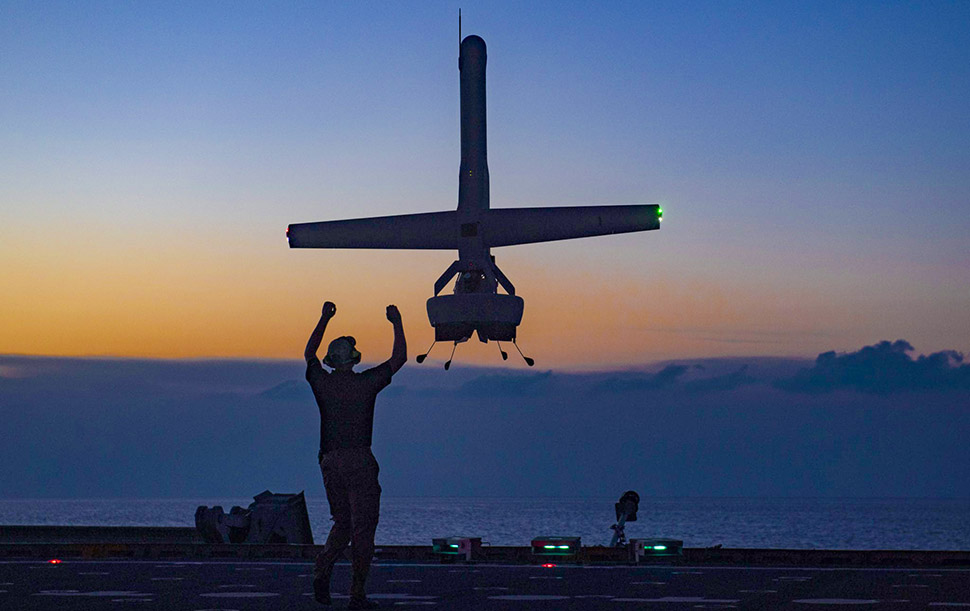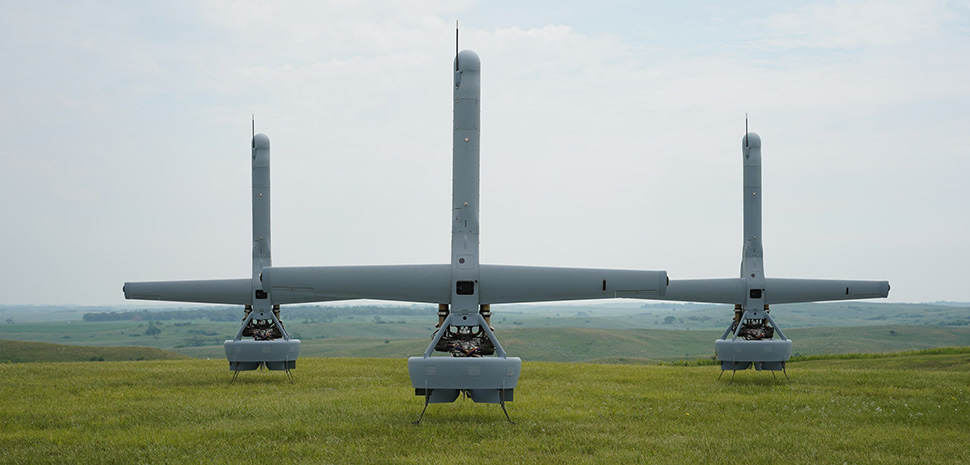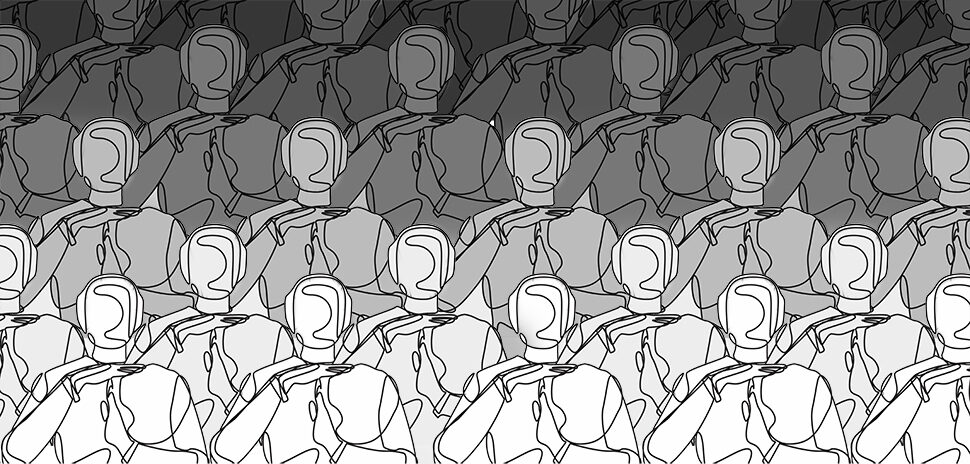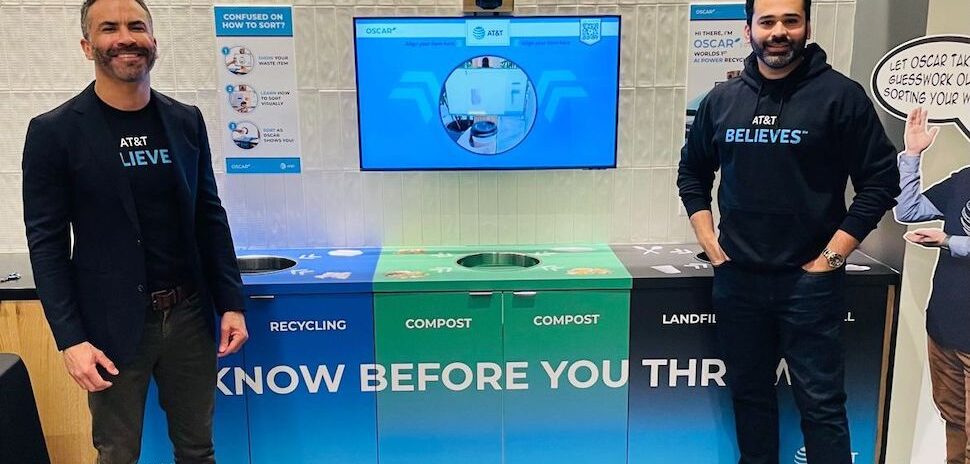Drone aircraft have become an essential tool in battlefield and defense environments, as the war in Ukraine has dramatically shown. Now a unique drone developed by Plano-based Martin UAV—which was acquired in 2021 by San Diego’s Shield AI—has been enhanced by a new, AI-powered teams capability.
The drone, called V-BAT, can take off and land vertically like a Space-X rocket. Once aloft, it can transition to level flight, then switch back to vertical hover to offer continuous “stare capabilities” over challenging environments and urban terrain. It can stay airborne for up to eight hours, has a top speed of around 90 knots, and can land almost anywhere. It takes only a two-person team to deploy it, and packs up to fit in the back of a pickup truck or UH-60 Blackhawk.
So what’s new? On Monday, Shield AI announced the official launch of its V-BAT Teams product, which enables multiple V-BATs “to autonomously execute missions in electronically contested environments while reading and reacting to adversaries, the environment, and the other V-BATs executing the mission.”
Teams product is powered by Hivemind, Shield AI’s AI pilot

[Photo: Martin UAV]
The enhancement is provided by a modular Nvidia GPU upgrade running Hivemind, Shield AI’s AI pilot. Loaded into the modular payload bay of the V-BAT, it makes the concept of “intelligent, affordable mass for aviation assets an operational reality,” Shield AI says.
Brandon Tseng, a former Navy SEAL who’s the co-founder and president of Shield AI, calls V-BAT Teams “the first step in intelligent, affordable mass not as a concept, but as an operational product.”
“We’re starting with a team size of four V-BATs, but that number will double annually for the foreseeable future,” Tseng said in a statement. “Four V-BATs that work together in electronic warfare environments and as part of a human-machine team are an incredible force multiplier. Ultimately, V-BAT Teams—as the team size increases—give squads the combat power of a battalion, or battalions the combat power of a corps or division.”
CEO: ‘Intelligent, swarming aircraft are the key to air dominance’
The company said V-BAT Teams can give warfighters 24/7 comprehensive coverage over large geographic regions “to find, fix, and target thousands of enemy assets in operational, electronically contested areas at an affordable price.” V-BAT Teams can scale to support “hundreds and even thousands” of aircraft in future deployments, the company added.
Ryan Tseng, Shield AI’s co-founder and CEO, believes “Intelligent, swarming aircraft are the key to air dominance and more importantly, to deterrence.”
“Our nation is faced with the difficult reality that our pilots are too few and the rules-based autonomy solutions are too dumb for such swarms to exist,” Ryan Tseng added in a statement. “Shield AI changes this. For almost nine years, Shield AI has focused on building the world’s best AI pilot from a common AI backbone that’s relevant and deployable to any aircraft—from quadcopters to F-16s. The technology is ready when we need it most.”
The CEO said intelligent teams of V-BATs, powered by Hivemind, “can be purchased today and will be on the battlefield in 2024.”
Founded in 2015, Shield AI is a venture-backed defense tech company with offices in San Diego, Plano, Washington, D.C., and abroad. Its products and people “are currently in the field actively supporting operations with the U.S. Department of Defense and U.S. allies,” the company said.
If you want to see V-BAT Teams in action, some striking video of deployments and swarming flights plays automatically on a Shield AI webpage.
![]()
Get on the list.
Dallas Innovates, every day.
Sign up to keep your eye on what’s new and next in Dallas-Fort Worth, every day.






![[Image: Ryzhi/istockphoto]](https://s24806.pcdn.co/wp-content/uploads/2019/02/Ryzhi_big-data-and-artificial-intelligence-domination-concept-vector-id1060622908-970x464.jpg)
























